Here are my favorite poems about fire categorized:
- Short poems about fire
- Poems about fire and love
- Poems about fire and passion
- Poems about fire and destruction
- Poems about fire and ice
- Poems about fire burning
So if you want the best poems about fire, then you’re in the right place.
Let’s get into it!
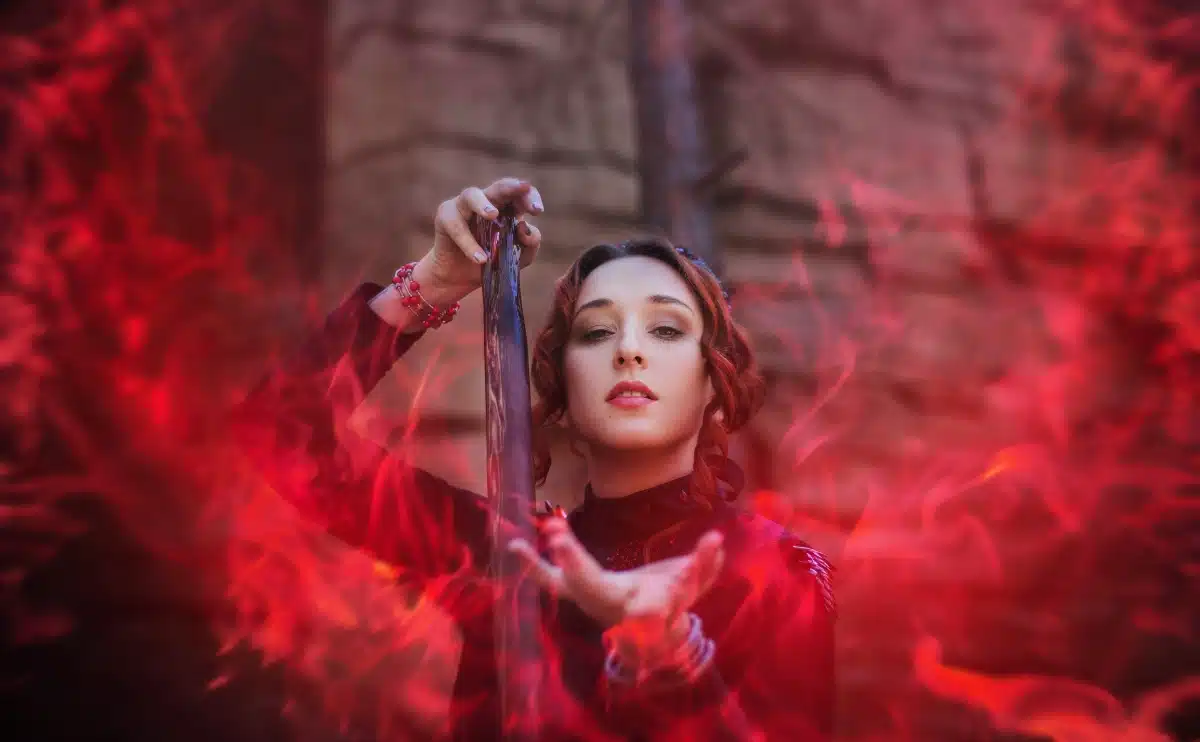
Wild Poems About Fire
Ignite your spirit with an enthralling collection of introspective fire poems, meticulously categorized for a transformative journey.
From verses that blaze with passion to those that embody the inferno’s power, our curated selection illuminates the essence of fire’s captivating embrace.
Immerse yourself in this fiery anthology, where words dance and flicker, evoking the primal energy and profound symbolism that fire holds within.
Let these evocative works ignite your imagination, fuel your emotions, and guide you through the transformative realms of flames, where warmth, destruction, and rebirth intertwine in a mesmerizing symphony of poetic expression.
Let’s go!
My #1 Favorite Poem About Fire
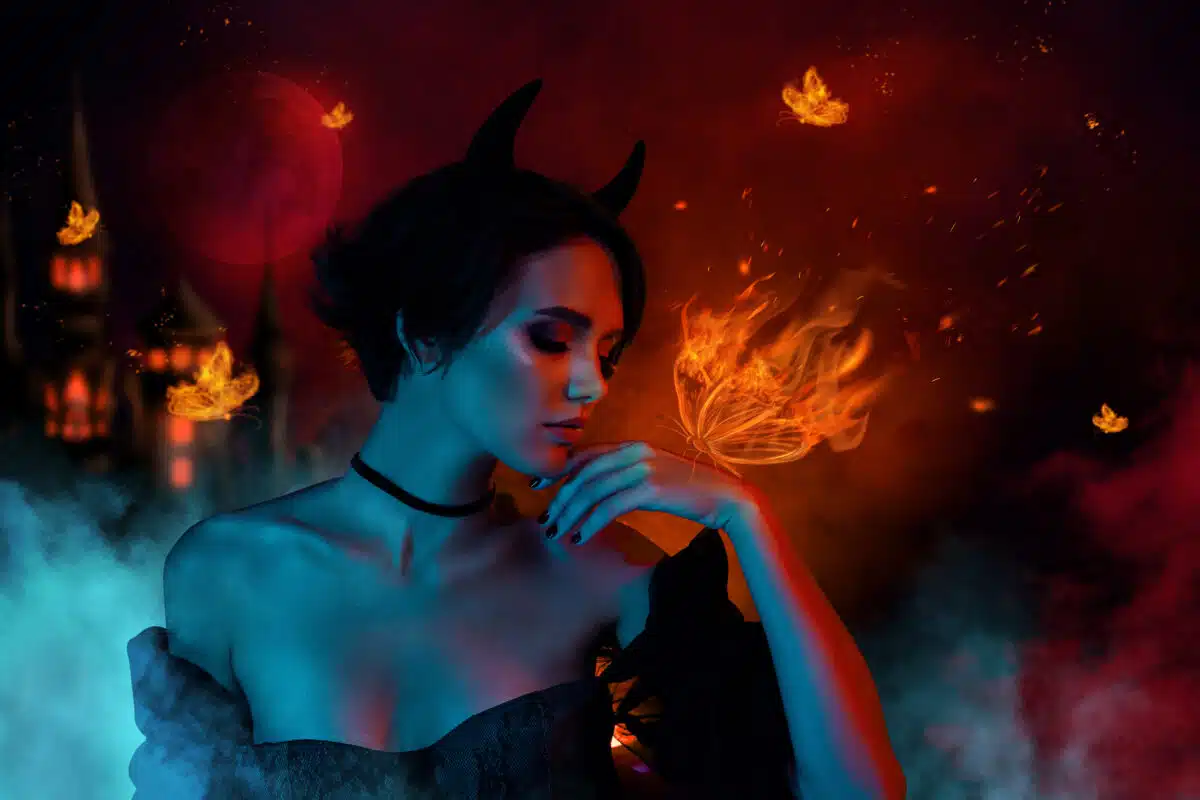
“Fire” by Max Michelson
You contain more
Than the red and the purple and the orange
Which I see:
If I dared to tear you to shreds with my hands
I would find that you contain also water,
And ice, and even blackish-brown earth,
To make beautiful things with.
Short Poems About Fire
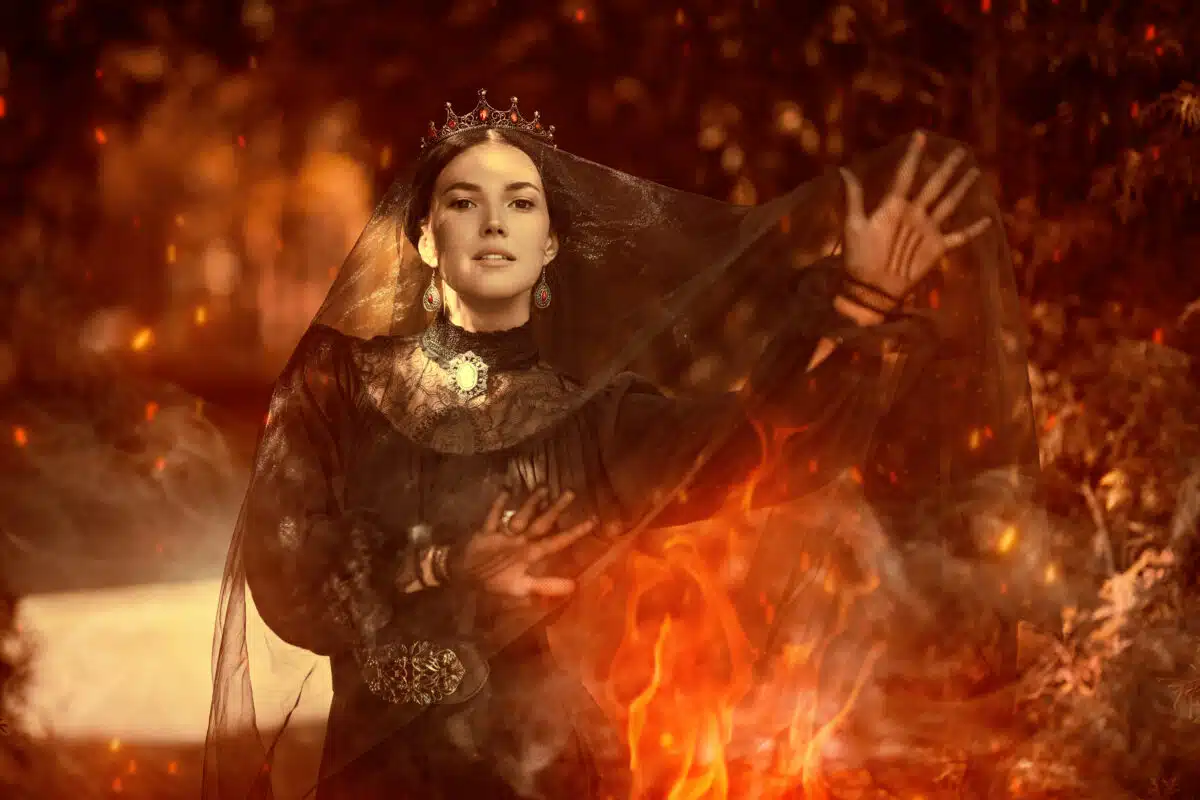
“Hell Fire.” by Robert Herrick
One only fire has hell; but yet it shall
Not after one sort there excruciate all:
But look, how each transgressor onward went
Boldly in sin, shall feel more punishment.
“A Shropshire Lad LX” by Alfred Edward Housman
Now hollow fires burn out to black,
And lights are guttering low:
Square your shoulders, lift your pack,
And leave your friends and go.
Oh never fear, man, nought’s to dread,
Look not left nor right:
In all the endless road you tread
There’s nothing but the night.
“Autumn Fires” by Robert Louis Stevenson
In the other gardens
And all up the vale,
From the autumn bonfires
See the smoke trail!
Pleasant summer over
And all the summer flowers,
The red fire blazes,
The gray smoke towers.
Sing a song of seasons!
Something bright in all!
Flowers in the summer,
Fires in the fall!
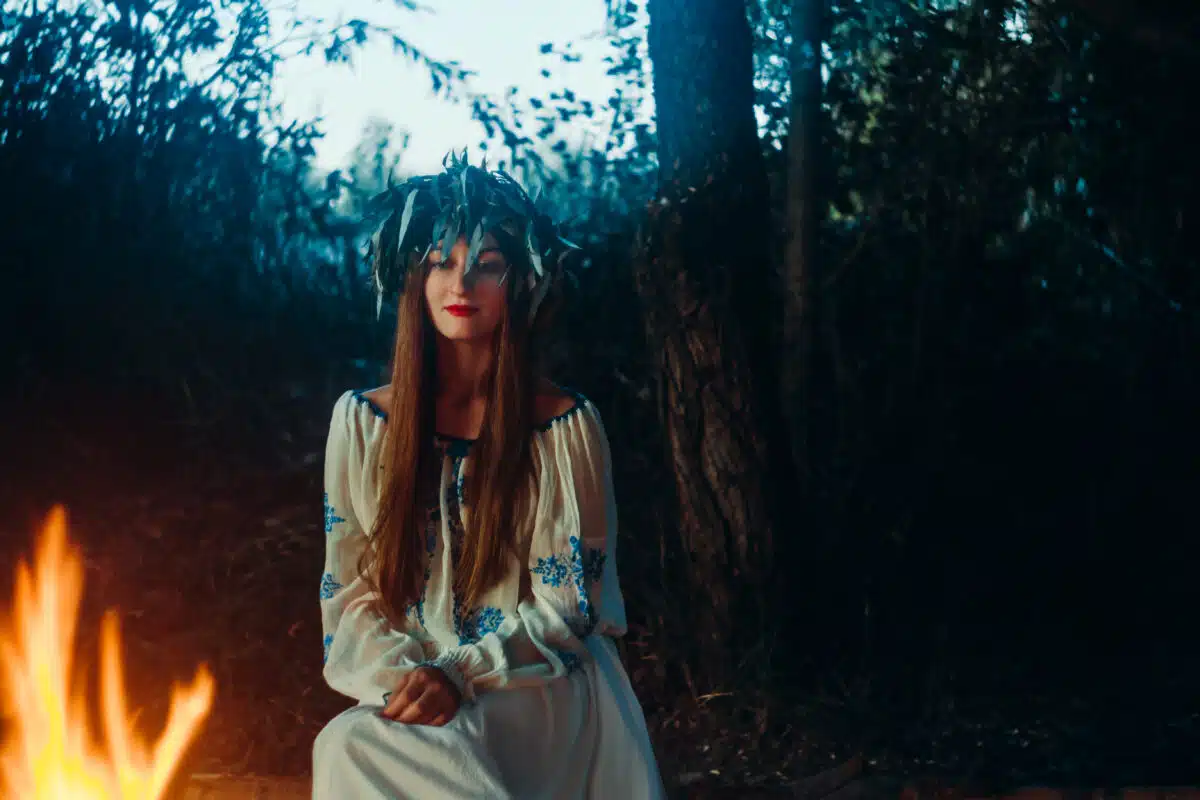
“The Mystic’s Prayer” by Fiona MacLeod (William Sharp)
Lay me to sleep in sheltering flame,
O Master of the Hidden Fire!
Wash pure my heart, and cleanse for me
My soul’s desire.
In flame of sunrise bathe my mind,
O Master of the Hidden Fire,
That, when I wake, clear-eyed may be
My soul’s desire.
“Life” by John Hall Wheelock
Life burns us up like fire,
And Song goes up in flame:
The radiant body smoulders
To the ashes whence it came.
Out of things it rises
With a mouth that laughs and sings,
Backward it fades and falters
Into the char of things.
Yet soars a voice above it—
Love is holy and strong;
The best of us forever
Escapes in Love and Song.
“You cannot put a fire out;” by Emily Dickinson
You cannot put a fire out;
A thing that can ignite
Can go, itself, without a fan
Upon the slowest night.
You cannot fold a flood
And put it in a drawer,—
Because the winds would find it out,
And tell your cedar floor.

“Kin” by Carl Sandburg
Brother, I am fire
Surging under the ocean floor.
I shall never meet you, brother—
Not for years, anyhow;
Maybe thousands of years, brother.
Then I will warm you,
Hold you close, wrap you in circles,
Use you and change you—
Maybe thousands of years, brother.
“Fire-Logs” by Carl Sandburg
Nancy Hanks dreams by the fire;
Dreams, and the logs sputter,
And the yellow tongues climb.
Red lines lick their way in flickers.
Oh, sputter, logs.
Oh, dream, Nancy.
Time now for a beautiful child.
Time now for a tall man to come.
“Fire Pages” by Carl Sandburg
I will read ashes for you, if you ask me.
I will look in the fire and tell you from the gray lashes
And out of the red and black tongues and stripes,
I will tell how fire comes
And how fire runs far as the sea.
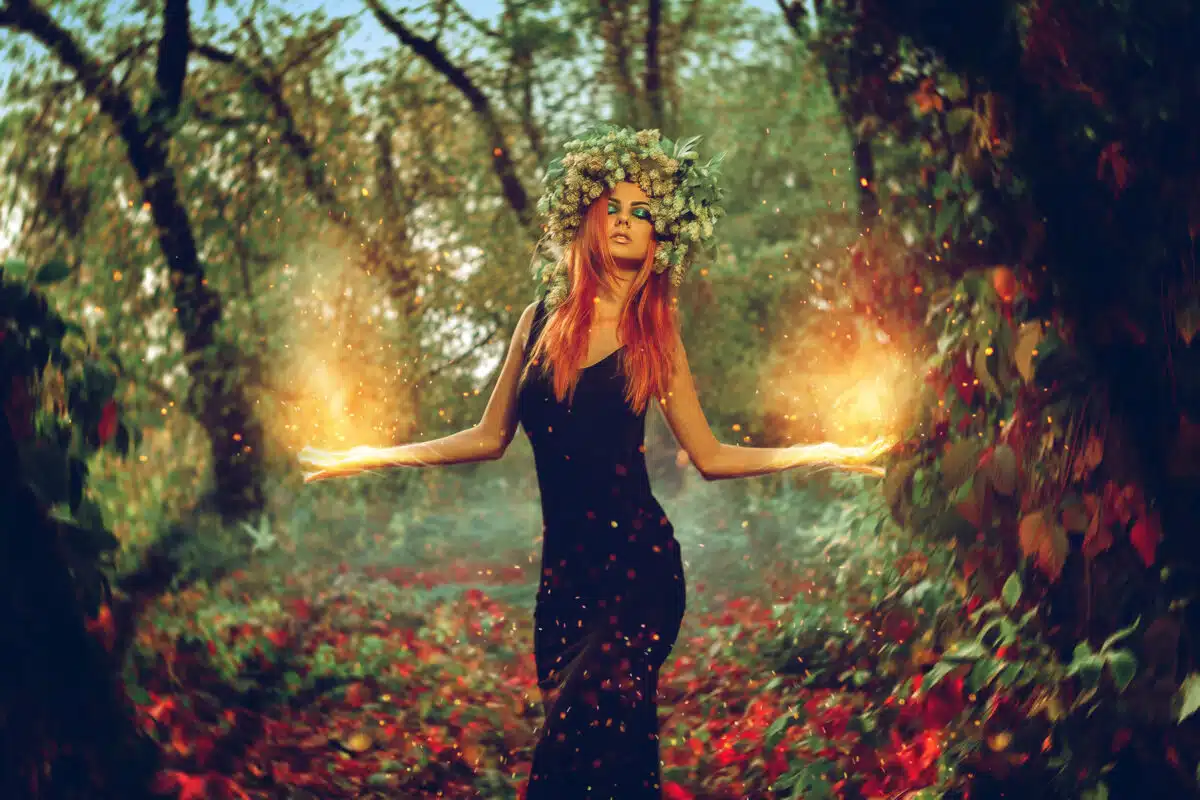
“Fire.” by Emily Elizabeth Dickinson
Ashes denote that fire was;
Respect the grayest pile
For the departed creature’s sake
That hovered there awhile.
Fire exists the first in light,
And then consolidates, —
Only the chemist can disclose
Into what carbonates.
“The Burning-Glass” by Walter Murdoch
A shaft of fire that falls like dew,
And melts and maddens all my blood,
From out thy spirit flashes through
The burning-glass of womanhood.
Only so far; here must I stay:
Nearer I miss the light, the fire;
I must endure the torturing ray,
And with all beauty, all desire.
Ah, time long must the effort be,
And far the way that I must go
To bring my spirit unto thee,
Behind the glass, within the glow.
“Carlyle and Emerson” by Montgomery Schuyler
A bale-firekindled in the night,
By night a blaze, by day a cloud,
With flame and smoke all England woke,—
It climbed so high, it roared so loud:
While over Massachusetts’ pines
Uprose a white and steadfast star;
And many a night it hung unwatched,—
It shone so still, it seemed so far.
But Light is Fire, and Fire is Light;
And mariners are glad for these,—
The torch that flares along the coast,
The star beams above the seas.
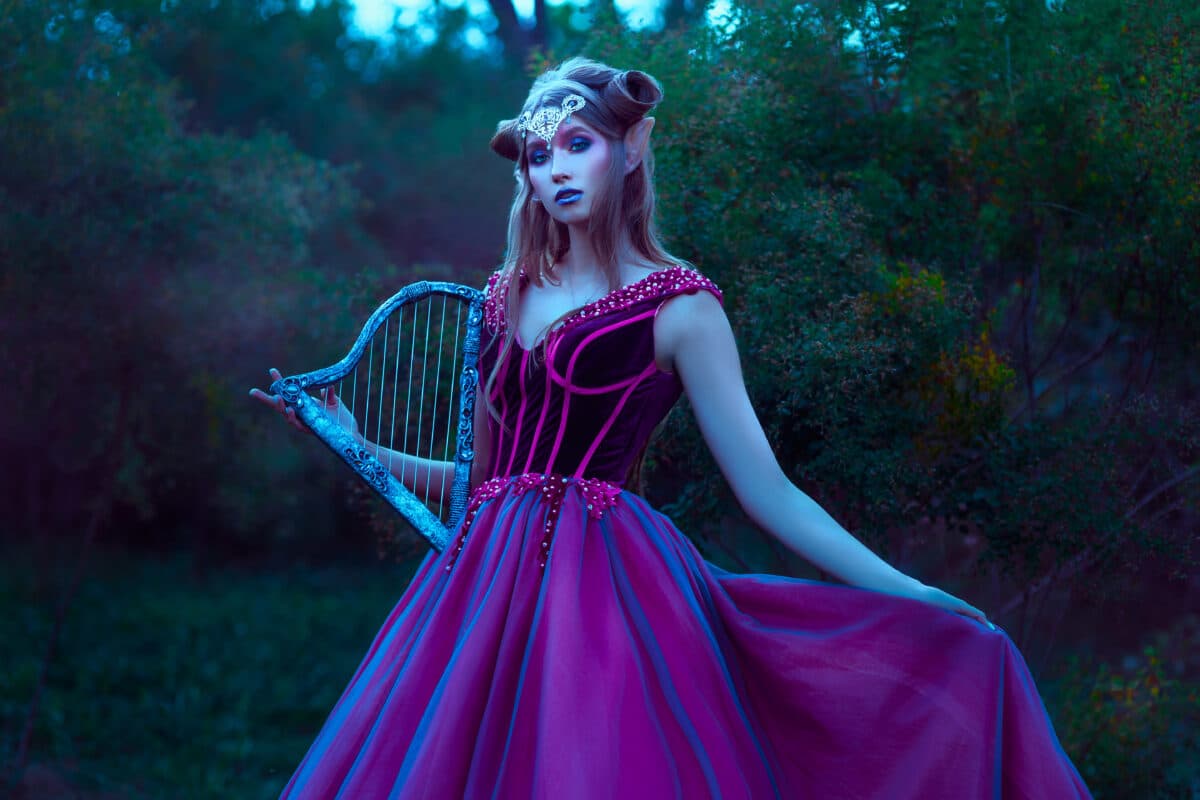
“Hell Fire.” by Robert Herrick
The fire of hell this strange condition hath,
To burn, not shine, as learned Basil saith.
Poems About Fire and Love
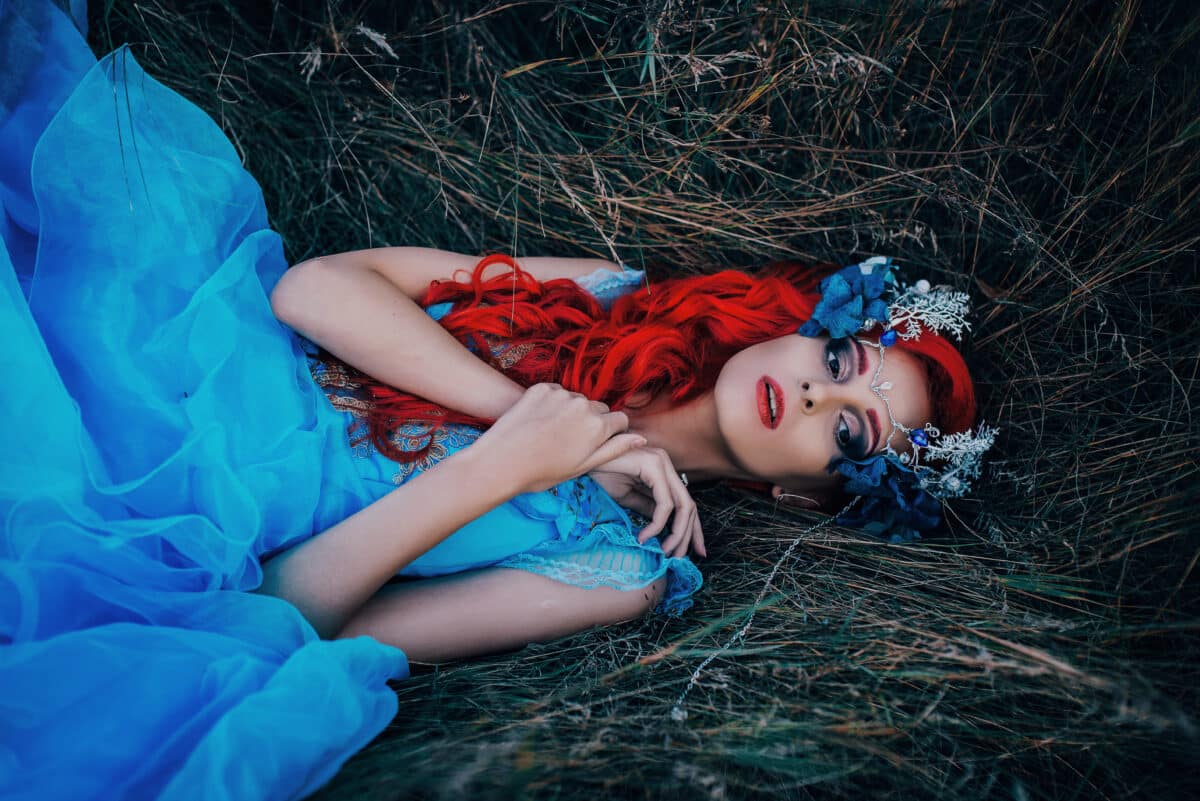
“Love’s Furnace.” by Michelangelo di Lodovico Buonarroti Simoni
So friendly is the fire to flinty stone,
That, struck therefrom and kindled to a blaze,
It burns the stone, and from the ash doth raise
What lives thenceforward binding stones in one:
Kiln-hardened this resists both frost and sun,
Acquiring higher worth for endless days–
As the purged soul from hell returns with praise,
Amid the heavenly host to take her throne.
E’en so the fire struck from my soul, that lay
Close-hidden in my heart, may temper me,
Till burned and slaked to better life I rise.
If, made mere smoke and dust, I live to-day,
Fire-hardened I shall live eternally;
Such gold, not iron, my spirit strikes and tries.”
“Oh Day Of Fire And Sun” by Sara Teasdale
Oh day of fire and sun,
Pure as a naked flame,
Blue sea, blue sky and dun
Sands where he spoke my name;
Laughter and hearts so high
That the spirit flew off free,
Lifting into the sky
Diving into the sea;
Oh day of fire and sun
Like a crystal burning,
Slow days go one by one,
But you have no returning.
“In The Firelight.” by John Milton Hay
My dear wife sits beside the fire
With folded hands and dreaming eyes,
Watching the restless flames aspire,
And rapt in thralling memories.
I mark the fitful firelight fling
Its warm caresses on her brow,
And kiss her hands’ unmelting snow,
And glisten on her wedding-ring.
The proud free head that crowns so well
The neck superb, whose outlines glide
Into the bosom’s perfect swell
Soft-billowed by its peaceful tide,
The cheek’s faint flush, the lip’s red glow,
The gracious charm her beauty wears,
Fill my fond eyes with tender tears
As in the days of long ago.
Days long ago, when in her eyes
The only heaven I cared for lay,
When from our thoughtless Paradise
All care and toil dwelt far away;
When Hope in wayward fancies throve,
And rioted in secret sweets,
Beguiled by Passion’s dear deceits, –
The mysteries of maiden love.
One year had passed since first my sight
Was gladdened by her girlish charms,
When on a rapturous summer night
I clasped her in possessing arms.
And now ten years have rolled away,
And left such blessings as their dower;
I owe her tenfold at this hour
The love that lit our wedding-day.
For now, vague-hovering o’er her form,
My fancy sees, by love refined,
A warmer and a dearer charm
By wedlock’s mystic hands entwined, –
A golden coil of wifely cares
That years have forged, the loving joy
That guards the curly-headed boy
Asleep an hour ago upstairs.
A fair young mother, pure as fair,
A matron heart and virgin soul!
The flickering light that crowns her hair
Seems like a saintly aureole.
A tender sense upon me falls
That joy unmerited is mine,
And in this pleasant twilight shine
My perfect bliss myself appals.
Come back! my darling, strayed so far
Into the realm of fantasy, –
Let thy dear face shine like a star
In love-light beaming over me.
My melting soul is jealous, sweet,
Of thy long silence’ drear eclipse;
O kiss me back with living lips,
To life, love, lying at thy feet!
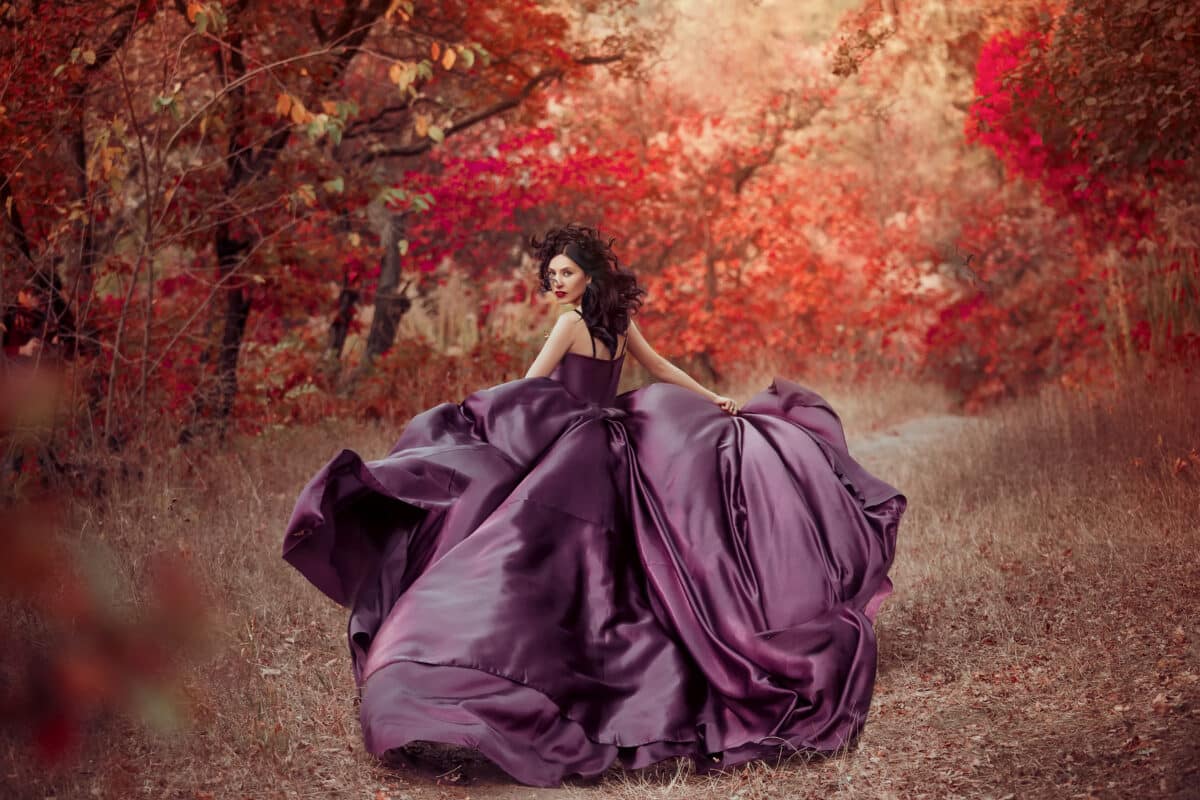
“The Dark Fire” by John Frederick Freeman
Love me not less
Yet ease me of this fever,
That in my wondering heart
Burns, sinks, burns again ever.
Is it your love
In me so fiercely burning,
Or my love leaping to you
Then requickened returning?
Come not to me,
Bring not your body nearer,
Though you overleapt the miles
I could not behold you clearer.
I could not clasp you
Than in my thought more surely;
Breast to breast, heart to heart
Might cling no more securely.
I do not know you,
Seeing you, more than unseeing.
What you are that you are
Here in my spiritual being.
Leave me you cannot,
Nor can I remove me
From the sevenfold dark fire
You have lit here since you love me.
Yet love unsure
No wilder could be burning.
Come, go, come, go,
There’s neither leaving nor returning.
Love me, love me more.
O, not my heart shall quaver
If the dark fire more deep
Sinks and is sevenfold sevenfold graver.
“Fire And Love” by Edward Powys Mathers (As Translator)
If you do not want your heart
Burnt at a small flame
Like a spitted sheep,
Fly the love of women.
Fire burns what it touches,
But love burns from afar.
“Sonnet XL.” by Francesco Petrarca (Petrarch)
HIS HEART IS ALL IN FLAMES, BUT HIS TONGUE IS MUTE, IN HER PRESENCE.
If fire was never yet by fire subdued,
If never flood fell dry by frequent rain,
But, like to like, if each by other gain,
And contraries are often mutual food;
Love, who our thoughts controllest in each mood,
Through whom two bodies thus one soul sustain,
How, why in her, with such unusual strain
Make the want less by wishes long renewed?
Perchance, as falleth the broad Nile from high,
Deafening with his great voice all nature round,
And as the sun still dazzles the fix’d eye,
So with itself desire in discord found
Loses in its impetuous object force,
As the too frequent spur oft checks the course.
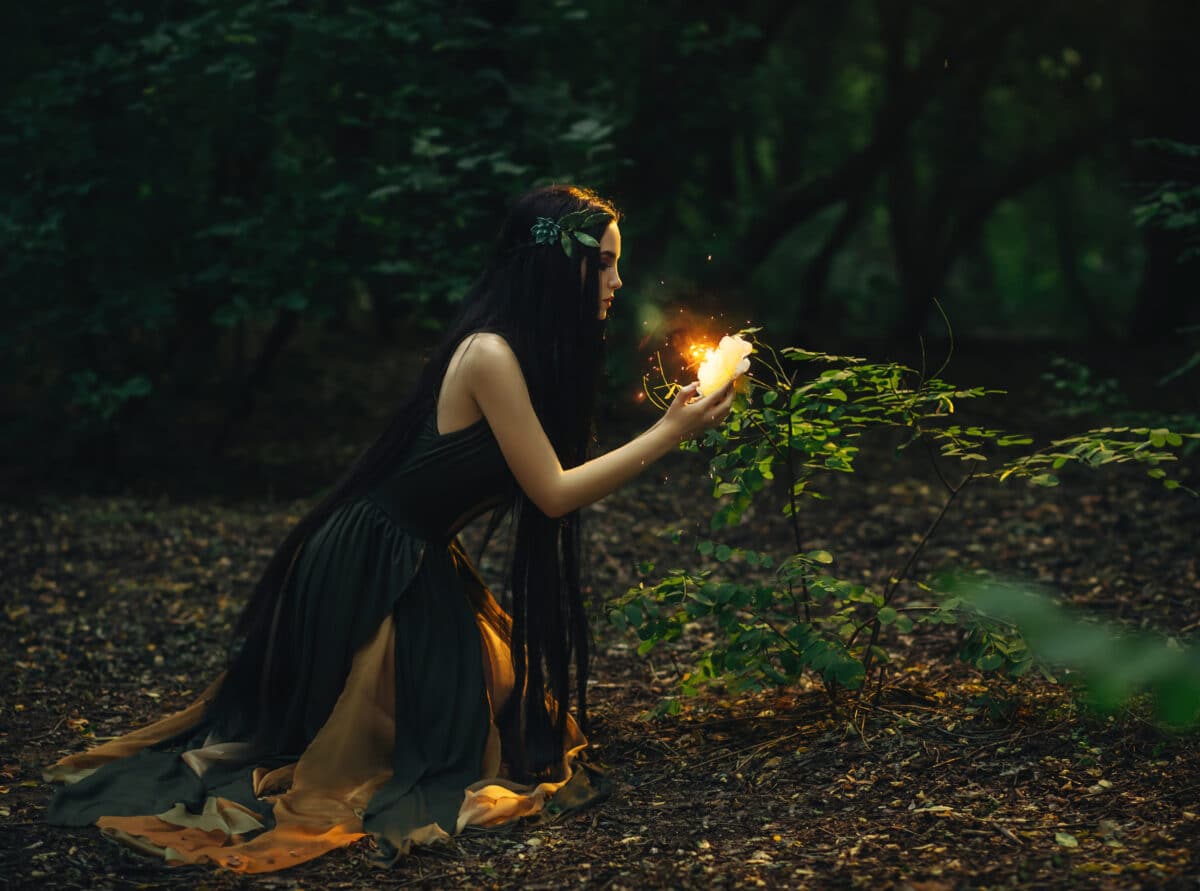
“Beauty’s Intolerable Splendour.” by Michelangelo di Lodovico Buonarroti Simoni
If but the fire that lightens in thine eyes
Were equal with their beauty, all the snow
And frost of all the world would melt and glow
Like brands that blaze beneath fierce tropic skies.
But heaven in mercy to our miseries
Dulls and divides the fiery beams that flow
From thy great loveliness, that we may go
Through this stern mortal life in tranquil wise.
Thus beauty burns not with consuming rage;
For so much only of the heavenly light
Inflames our love as finds a fervent heart.
This is my case, lady, in sad old age:
If seeing thee, I do not die outright,
‘Tis that I feel thy beauty but in part.
“Nocturne” by Abram Joseph Ryan
I sit to-night by the firelight,
And I look at the glowing flame,
And I see in the bright red flashes
A Heart, a Face, and a Name.
How often have I seen pictures
Framed in the firelight’s blaze,
Of hearts, of names, and of faces,
And scenes of remembered days!
How often have I found poems
In the crimson of the coals,
And the swaying flames of the firelight
Unrolled such golden scrolls.
And my eyes, they were proud to read them,
In letters of living flame,
But to-night, in the fire, I see only
One Heart, one Face, and one Name.
But where are the olden pictures?
And where are the olden dreams?
Has a change come over my vision?
Or over the fire’s bright gleams?
Not over my vision, surely;
My eyes — they are still the same,
That used to find in the firelight
So many a face and name.
Not over the firelight, either,
No change in the coals or blaze
That flicker and flash, as ruddy
To-night as in other days.
But there must be a change — I feel it.
To-night not an old picture came;
The fire’s bright flames only painted
One Heart, one Face, and one Name.
Three pictures? No! only one picture;
The Face belongs to the Name,
And the Name names the Heart that is throbbing
Just back of the beautiful flame.
Who said it, I wonder: “”All faces
Must fade in the light of but one;
The soul, like the earth, may have many
Horizons, but only one sun?””
Who dreamt it? Did I? If I dreamt it
‘Tis true — every name passes by
Save one; the sun wears many cloudlets
Of gold, but has only one sky.
And out of the flames have they faded,
The hearts and the faces of yore?
Have they sunk ‘neath the gray of the ashes
To rise to my vision no more?
Yes, surely, or else I would see them
To-night, just as bright as of old,
In the white of the coal’s silver flashes,
In the red of the restless flames’ gold.
Do you say I am fickle and faithless?
Else why are the old pictures gone?
And why should the visions of many
Melt into the vision of one?
Nay! list to the voice of the Heavens,
“”One Eternal alone reigns above.””
Is it true? and all else are but idols,
So the heart can have only one love?
Only one, all the rest are but idols,
That fall from their shrines soon or late,
When the Love that is Lord of the temple,
Comes with sceptre and crown to the gate.
To be faithless oft means to be faithful,
To be false often means to be true;
The vale that loves clouds that are golden
Forgets them for skies that are blue.
To forget often means to remember
What we had forgotten too long;
The fragrance is not the bright flower,
The echo is not the sweet song.
Am I dreaming? No, there is the firelight,
Gaze I ever so long, all the same
I only can see in its glowing
A Heart, a Face, and a Name.
Farewell! all ye hearts, names, and faces!
Only ashes now under the blaze,
Ye never again will smile on me,
For I’m touching the end of my days.
And the beautiful fading firelight
Paints, now, with a pencil of flame,
Three pictures — yet only one picture —
A Heart, a Face, and a Name.
“Upon Love.” by Robert Herrick
I played with Love, as with the fire
The wanton Satyr did;
Nor did I know, or could descry
What under there was hid.
That Satyr he but burnt his lips;
But mine’s the greater smart,
For kissing Love’s dissembling chips
The fire scorch’d my heart.
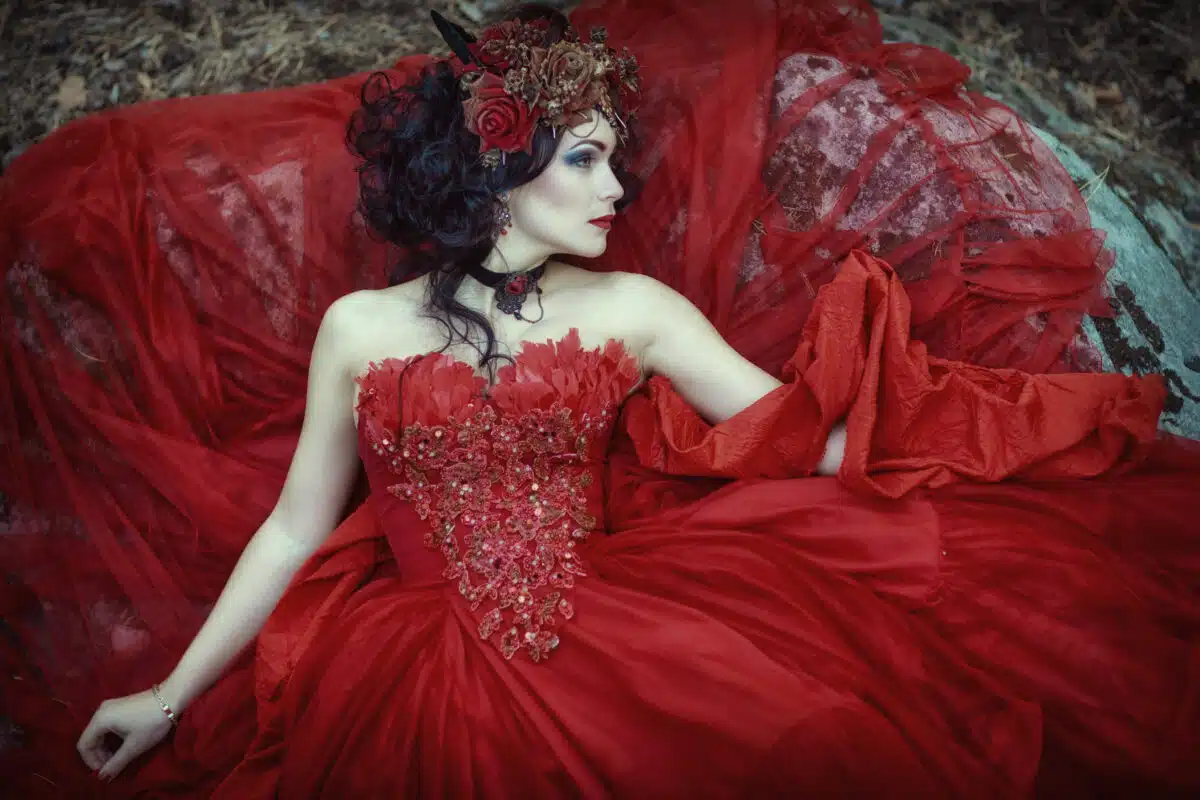
“Beauty, Since You So Much Desire” by Thomas Campion
Beauty, since you so much desire
To know the place of Cupid’s fire,
About you somewhere doth it rest,
Yet never harbour’d in your breast,
Nor gout-like in your heel or toe,—
What fool would seek Love’s flame so low?
But a little higher, but a little higher,
There, there, O there lies Cupid’s fire.
Think not, when Cupid most you scorn,
Men judge that you of ice were born;
For though you cast love at your heel,
His fury yet sometimes you feel:
And whereabouts if you would know,
I tell you still not in your toe:
But a little higher, but a little higher,
There, there, O there lies Cupid’s fire.
“My Heart was wandering in the Sands” by Christopher J. Brennan
My heart was wandering in the sands,
a restless thing, a scorn apart;
Love set his fire in my hands,
I clasp’d the flame unto my heart.
Surely, I said, my heart shall turn
one fierce delight of pointed flame;
and in that holocaust shall burn
its old unrest and scorn and shame:
surely my heart the heavens at last
shall storm with fiery orisons,
and know, enthroned in the vast,
the fervid peace of molten suns.
The flame that feeds upon my heart
fades or flares, by wild winds controll’d;
my heart still walks a thing apart,
my heart is restless as of old.
“My Comrade” by James Jeffrey Roche
The love of man and woman is as fire,
To warm, to light, but surely to consume
And self-consuming die. There is no room
For constancy and passionate desire.
We stand at last beside a wasted pyre,
Touch its dead embers, groping in the gloom;
And where an altar stood, erect a tomb,
And sing a requiem to a broken lyre.
But comrade-love is as a welding blast
Of candid flame and ardent temperature:
Glowing most fervent, it doth bind more fast;
And melting both, but makes the union sure.
The dross alone is burnt—till at the last
The steel, if cold, is one, and strong and pure.
Poems About Fire and Passion
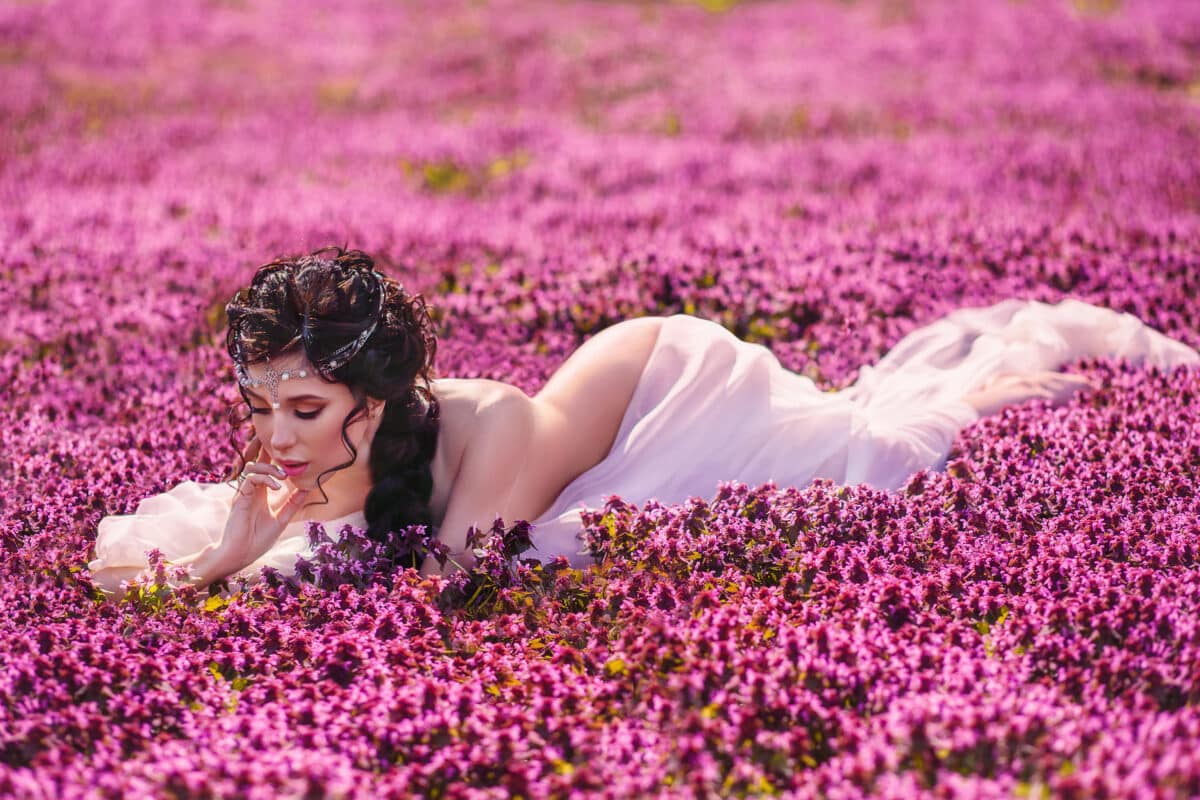
“As By Fire.” by Ella Wheeler Wilcox
Sometimes I feel so passionate a yearning
For spiritual perfection here below,
This vigorous frame, with healthful fervor burning,
Seems my determined foe,
So actively it makes a stern resistance,
So cruelly sometimes it wages war
Against a wholly spiritual existence
Which I am striving for.
It interrupts my soul’s intense devotions;
Some hope it strangles, of divinest birth,
With a swift rush of violent emotions
Which link me to the earth.
It is as if two mortal foes contended
Within my bosom in a deadly strife,
One for the loftier aims for souls intended,
One for the earthly life.
And yet I know this very war within me,
Which brings out all my will-power and control,
This very conflict at the last shall win me
The loved and longed-for goal.
The very fire which seems sometimes so cruel
Is the white light that shows me my own strength.
A furnace, fed by the divinest fuel,
It may become at length.
Ah! when in the immortal ranks enlisted,
I sometimes wonder if we shall not find
That not by deeds, but by what we’ve resisted,
Our places are assigned.
“Pyromania” by Paul Cameron Brown
She had a fireplace –
the sexual kiln
of her pyromaniac
desire,
a brick embedded in heat,
white hot coal to ember,
her lust flaring red,
soot to powder
dark as charcoal
smear, a walk
across shimmering mirror.
“Imitated From Catullus” by George Gordon Byron
Oh! might I kiss those eyes of fire,
A million scarce would quench desire;
Still would I steep my lips in bliss,
And dwell an age on every kiss;
Nor then my soul should sated be,
Still would I kiss and cling to thee:
Nought should my kiss from thine dissever,
Still would we kiss and kiss for ever;
E’en though the numbers did exceed
The yellow harvest’s countless seed;
To part would be a vain endeavour:
Could I desist? – ah! never – never.
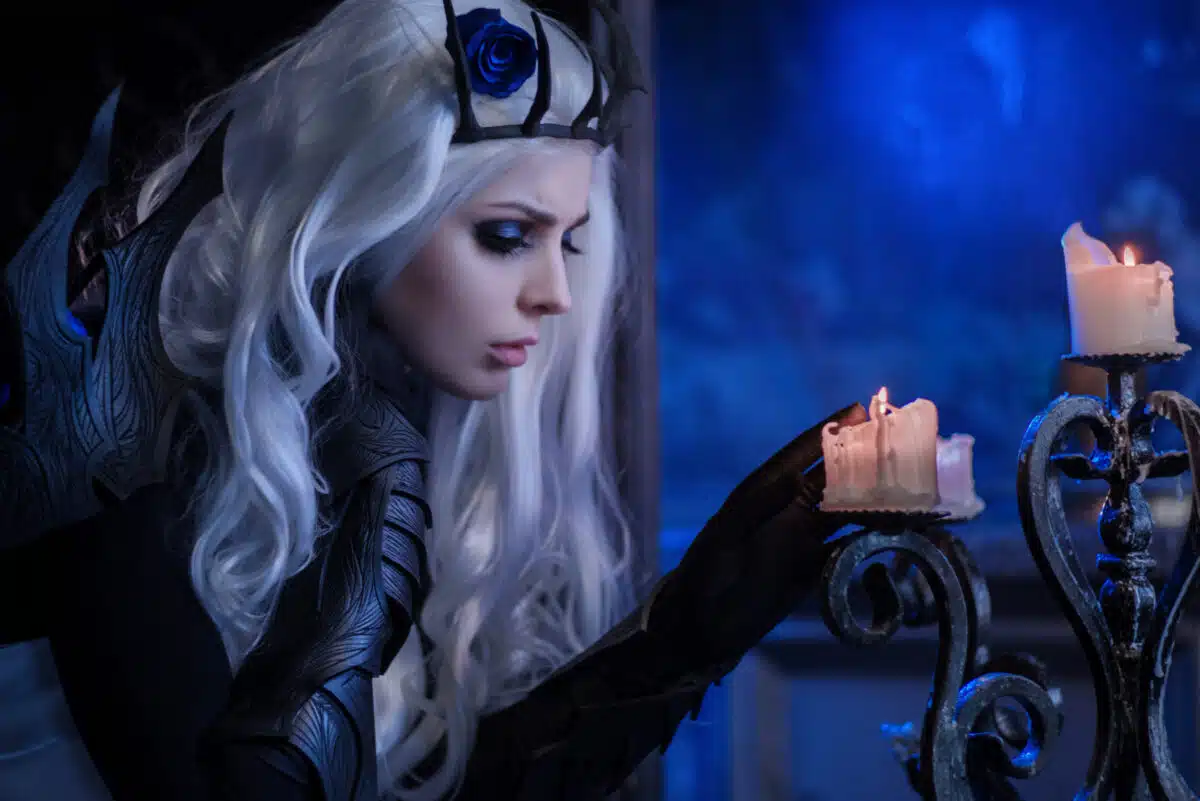
“The Fires” by Rudyard Kipling
Men make them fires on the hearth
Each under his roof-tree,
And the Four Winds that rule the earth
They blow the smoke to me.
Across the high hills and the sea
And all the changeful skies,
The Four Winds blow the smoke to me
Till the tears are in my eyes.
Until the tears are in my eyes
And my heart is well nigh broke
For thinking on old memories
That gather in the smoke.
With every shift of every wind
The homesick memories come,
From every quarter of mankind
Where I have made me a home.
Four times a fire against the cold
And a roof against the rain,
Sorrow fourfold and joy fourfold
The Four Winds bring again!
How can I answer which is best
Of all the fires that burn?
I have been too often host or guest
At every fire in turn.
How can I turn from any fire,
On any man’s hearthstone?
I know the wonder and desire
That went to build my own!
How can I doubt man’s joy or woe
Where’er his house-fires shine.
Since all that man must undergo
Will visit me at mine?
Oh, you Four Winds that blow so strong
And know that his is true,
Stoop for a little and carry my song
To all the men I knew!
Where there are fires against the cold,
Or roofs against the rain,
With love fourfold and joy fourfold,
Take them my songs again!
“But Most Thy Light” by John Frederick Freeman
I know how fire burns,
How from the wrangling fumes
Rose and amber blooms,
And slowly dies.
Nothing’s so swift as fire,
There’s nothing alive so fierce.
The lifted lances pierce,
Sink, and upspring.
Like an Indian sword it leaps
Out of the smoking sheath.
Even the winged feet of death
Learn speed from fire;
And pain its cunning learns;
Languor its sweet
From the decaying heat
That never dies.
I know how fire burns
Unguessed, save for tears,
When the thousand-fanged flame spears
The body’s guard;
Or when the mind, the mind
Is ever-glowing wood,
And fire runs in the blood
Lunatic, blind;
When remorse burns and burns
And burns always, always–
The fire that surest slays
Or surest numbs.
I know how fire burns
But how I cannot tell.
And Heaven burns like Hell
Yet the Heart endures.
‘Tis the immortal Flame
In mortal life that’s bitter,
Or than all sweet sweeter
Though life burns down.
Teach me, fire, but this,
Nor alone destroying burn:–
Of thy warmth let me learn,
But most thy light.
“From the Midst of the Fire” by James Thomson – (Bysshe Vanolis)
From the midst of the fire I fling
These arrows of fire to you:
If they sing, and burn, and sting,
You feel how I burn too;
But if they reach you there
Speed-spent, charred black and cold,
The fire burns out in the air,
The Passion will not be told.
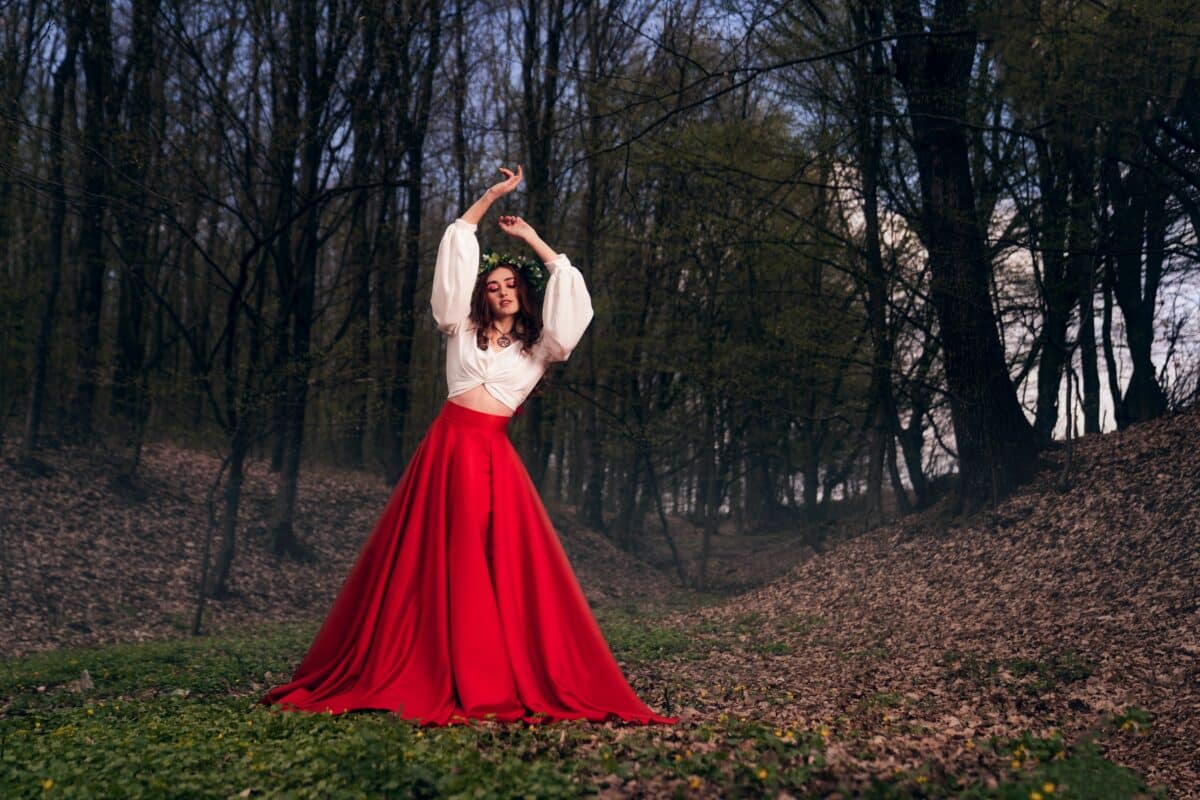
“Flame” by George Sterling
Thou art that madness of supreme desire,
Which lacking, beauty is but dross and clay.
Within thy veins is all the fire of day
And all the stars divinity of fire.
Thine are the lips and loins that never tire,
And thine the bliss that makes my soul dismay.
Upon thy breast what god at midnight lay,
To make thy flesh the music of his lyre?
Ah! such alone should know thy loveliness!
Ah! such alone should know thy full caress,
O goddess of intolerable delight!
I beg of Fate the guerdon and the grace,
Far beyond death, to know in thine embrace
Eternal rapture in eternal night.
“The Fire That Filled My Heart of Old” by James Thomson – (Bysshe Vanolis)
The fire that filled my heart of old
Gave luster while it burned;
Now only ashes gray and cold
Are in its silence urned.
Ah! better was the furious flame,
The splendor with the smart;
I never cared for the singer’s fame
But, oh! for the singer’s heart
Once more–
The burning fulgent heart!
No love, no hate, no hope, no fear,
No anguish and no mirth;
Thus life extends from year to year,
A flat of sullen dearth.
Ah! life’s blood creepeth cold and tame,
Life’s thought plays no new part;
I never cared for the singer’s fame,
But, oh! for the singer’s heart
Once more–
The bleeding passionate heart!
“The Flaming Heart” by Richard Crashaw
O though undaunted daughter of desires!
By all thy dower of lights and fires;
By all the eagle in thee, all the dove;
By all thy lives and deaths of love;
By thy large draughts of intellectual day,
And by thy thirsts of love more large than they;
By all thy brim-fill’d bowls of fierce desire,
By thy last morning’s draught of liquid fire;
By the full kingdom of that final kiss
That seiz’d thy parting soul, and seal’d thee His;
By all the Heav’n thou hast in Him
(Fair sister of the seraphim!)
By all of Him we have in thee;
Leave nothing of myself in me.
Let me so read thy life, that I
Unto all life of mine may die.
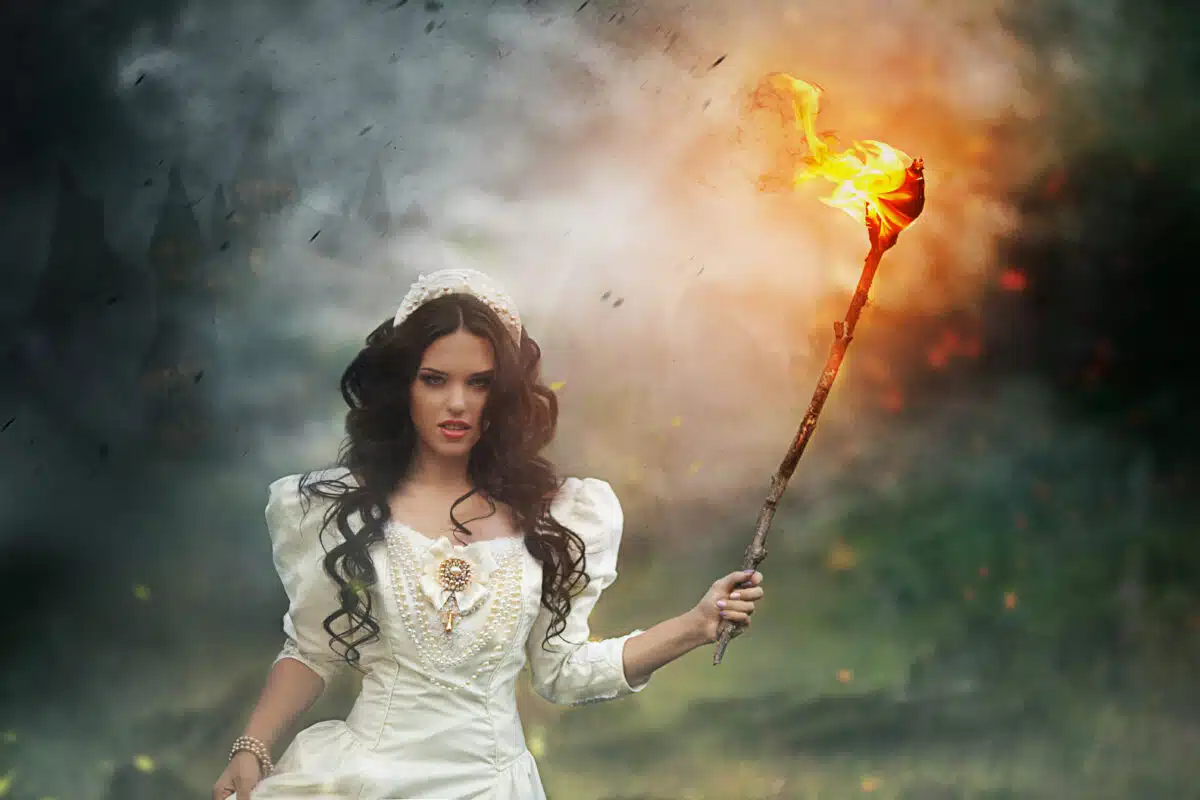
“The Rose of Flame” by Fiona MacLeod (William Sharp)
Oh, fair immaculate rose of the world, rose of my dream, my Rose!
Beyond the ultimate gates of dream I have heard thy mystical call:
It is where the rainbow of hope suspends and the river of rapture flows—
And the cool sweet dews from the wells of peace for ever fall.
And all my heart is aflame because of the rapture and peace,
And I dream, in my waking dreams and deep in the dreams of sleep,
Till the high sweet wonderful call that shall be the call of release
Shall ring in my ears as I sink from gulf to gulf and from deep to deep—
Sink deep, sink deep beyond the ultimate dreams of all desire—
Beyond the uttermost limit of all that the craving spirit knows:
Then, then, oh then I shall be as the inner flame of thy fire,
O fair immaculate rose of the world, Rose of my dream, my Rose!
Poems About Fire and Destruction

“Fire” by Joseph Addison Wing
The fire is raging wild
O’er every prairie West ;
It glows above the pines
On every mountain crest.
It sweeps along the river,
Each brook and rippling rill
It shines upon each lake,
And o’er each vale and hill.
Along the broad Pacific
You hear its crackling oar;
It shines in every place
Along the eastern shore.
‘Twas freedom set the fire
That sweeps each wood and plain;
It glows from every place
Form Oregon to Maine.
There’s Lincoln in the West,
A loved and honored name
And Hamlin in the East,
Are spreading wide the flame.
‘Tis sweeping o’ver Missouri,
Kentucky’s in a blaze
O’ver Virginia’s mountains
The flame in terror plays.
The southern planter trembles
And starts in wildest fright
As on the North he gazes
And sees the brilliant light.
Buchanan sees the flame
Now rising high and higher
While tears bedew his cheeks
He’s crying “Fire! fire! fire!”
“Oh ring the bells my boys!”
In anguish deep he cries;
“Oh see the flame is sweeping
Towards the southern skies.
“Oh bring the engines quick,
My southern friends so true
To stop this raging fire
I now depend on you.
“There’s Douglas once so true
On every field of toil
See see the traitor now
For water pours on oil!
“Ah Davis Wise and Tombs,
And ev’ry gallant name
Who long have proudly stood
To stop the rising flame,
“You cannot stop its rage
The flame spreads fast each night,
Our broken ranks in fear
Must save themselves by flight.”
From “Fire.” by William McKendree Carleton
Fire! – fire! – fire! – fire! – it sets me in a craze
To see a first-class building all ablaze;
A burning house resembles, when I’m nigh,
Some old acquaintance just about to die;
For structures that a person often sees
Look some like human beings – same as trees.
(There used to be some trees on my old place
That I’d know anywhere – just by their face.)
And when, last night, some bells began to cry,
And big fire-engines rushed and rattled by,
In just three minutes down the stairs I strode,
And hurried – somewhat dressed – into the road
(Partly to help a bit, if so might be,
And partly, I suppose, to hear and see).
It was a dark and thunder-stormy night;
There wasn’t one inch of honest sky in sight;
Great black-finned clouds were swimming through the air,
And now and then their lightning-eyes would glare,
And, like a lot of cannon far away,
Some peals of thunder came from o’er the bay.
‘Twas one of those strange nights I can’t explain,
That make you think they’re just a-going to rain,
But never do – save now and then a trace
Of a small drop comes dashing on your face;
One of those nights that try to keep you vexed
And wondering as to what will happen next.
I like such times: they kind of draw me nearer
To things unseen, and make all mystery clearer.
I ran like sin, and reached the fire at last:
A good-sized church was going, pretty fast.
(I’d noticed it a hundred times or more,
And several times had stepped inside the door.)
The burglar flames within had prowled around
A long time previous to their being found,
Till they had gained such foothold and such might
They’d turned to robbers – stealing plain in sight.
The dome and spires had on them flags of red;
They soon came thundering down from overhead.
It looked as if infernal spirits came,
To take this church away, in smoke and flame!
“Armies in the Fire” by Stevenson, Robert Louis
The lamps now glitter down the street;
Faintly sound the falling feet;
And the blue even slowly falls
About the garden trees and walls.
Now in the falling of the gloom
The red fire paints the empty room:
And warmly on the roof it looks,
And flickers on the backs of books.
Armies march by tower and spire
Of cities blazing, in the fire;—
Till as I gaze with staring eyes,
The armies fade, the lustre dies.
Then once again the glow returns;
Again the phantom city burns;
And down the red-hot valley, lo!
The phantom armies marching go!
Blinking embers, tell me true
Where are those armies marching to,
And what the burning city is
That crumbles in your furnaces!
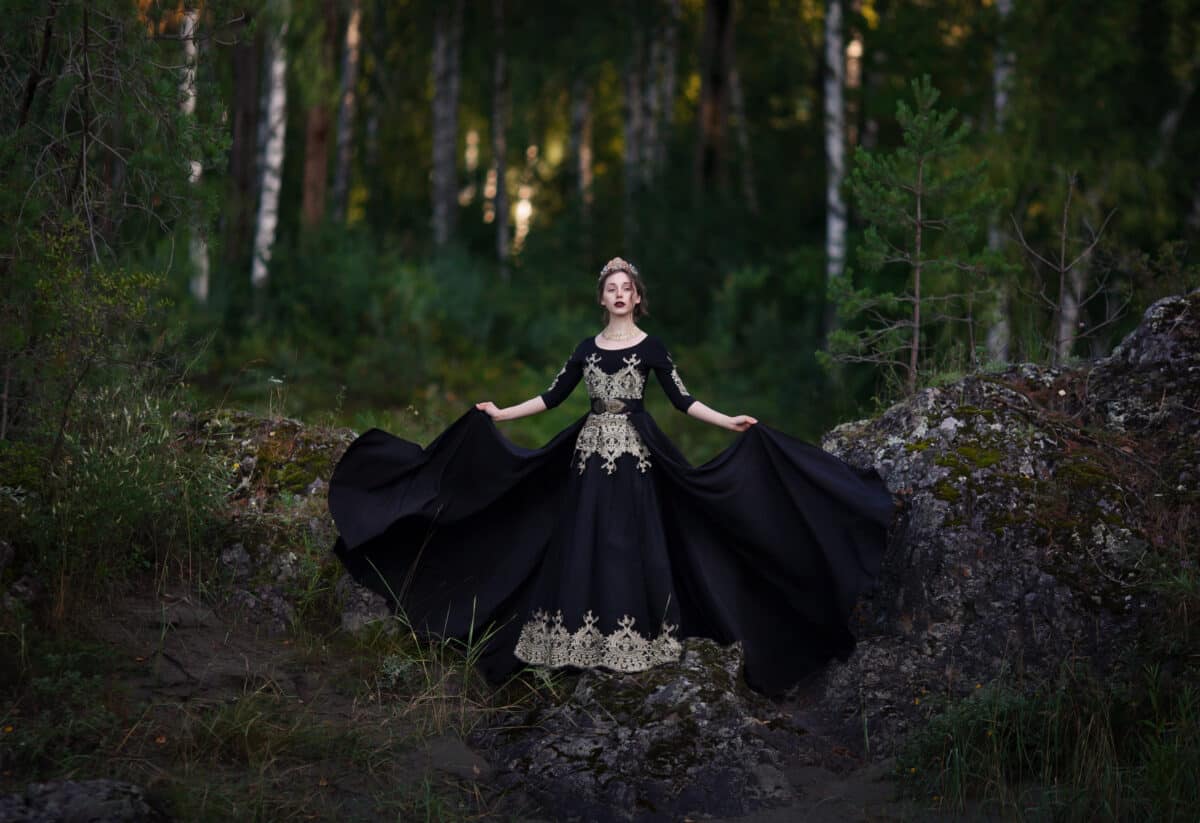
“Fires in Illinois” by John James Piatt
How bright this weird autumnal eve—
While the wild twilight clings around,
Clothing the grasses everywhere
With scarce a dream of sound!
The high horizon’s northern line,
With many a silent-leaping spire,
Seems a dark shore,—a sea of flame,—
Quick, crawling waves of fire!
I stand in dusky solitude,
October breathing low and chill,
And watch the far-off blaze that leaps
At the wind’s wayward will.
These boundless fields, behold, once more,
Sea-like in vanished summers stir;
From vanished autumns comes the Fire,—
A lone, bright harvester!
I see wide terror lit before,—
Wild steeds, fierce herds of bison here,
And, blown before the flying flame,
The flying-footed deer!
Long trains (with shaken bells, that moved
Along red twilights sinking slow)
Whose wheels grew weary on their way,
Far westward, long ago;
Lone wagons bivouacked in the blaze,
That, long ago, streamed wildly past;
Faces from that bright solitude
In the hot gleam aghast!
A glare of faces like a dream,
No history after or before,
Inside the horizon with the flames,
The flames,—nobody more!
That vision vanishes in me,
Sudden and swift and fierce and bright;
Another gentler vision fills
The solitude, to-night:
The horizon lightens everywhere,
The sunshine rocks on windy maize;
Hark, everywhere are busy men,
And children at their plays!
Far church-spires twinkle at the sun,
From villages of quiet born,
And, far and near, and everywhere,
Homes stand amid the corn.
No longer driven by wind, the Fire
Makes all the vast horizon glow,
But, numberless as the stars above,
The windows shine below!
Extracts from “Annus Mirabilis” by John Dryden
Such was the rise of this prodigious fire,
Which, in mean buildings first obscurely bred,
From thence did soon to open streets aspire,
And straight to palaces and temples spread.
The diligence of trades, and noiseful gain,
And luxury, more late, asleep were laid;
All was the Night’s, and in her silent reign
No sound the rest of Nature did invade.
In this deep quiet, from what source unknown,
Those seeds of fire their fatal birth disclose;
And first few scattering sparks about were blown,
Big with the flames that to our ruin rose.
Then in some close-pent room it crept along,
And, smouldering as it went, in silence fed;
Till the infant monster, with devouring strong,
Walked boldly upright with exalted head.
“Fire” by Wilfrid Wilson Gibson
In each black tile a mimic fire’s aglow,
And in the hearthlight old mahogany,
Ripe with stored sunshine that in Mexico
Poured like gold wine into the living tree
Summer on summer through a century,
Burns like a crater in the heart of night:
And all familiar things in the ingle-light
Glow with a secret strange intensity.
And I remember hidden fires that burst
Suddenly from the midnight while men slept,
Long-smouldering rages in the darkness nursed
That to an instant ravening fury leapt,
And the old terror menacing evermore
A crumbling world with fiery molten core.
Poems About Fire and Ice
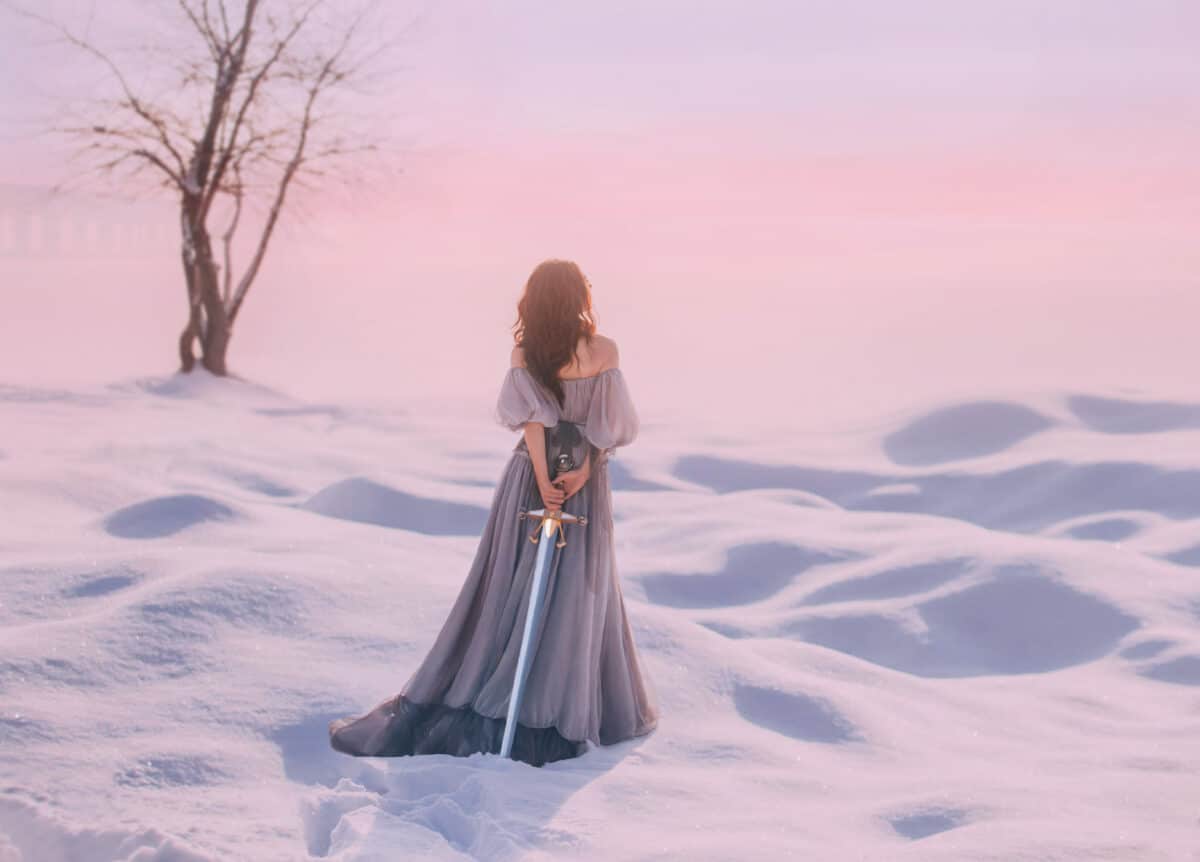
“Fire And Ice” by Robert Lee Frost
Some say the world will end in fire;
Some say in ice.
From what I’ve tasted of desire
I hold with those who favor fire.
But if it had to perish twice,
I think I know enough of hate
To know that for destruction ice
Is also great
And would suffice.
“Snow And Fire” by Madison Julius Cawein
Deep-hearted roses of the purple dusk
And lilies of the morn;
And cactus, holding up a slender tusk
Of fragrance on a thorn;
All heavy flowers, sultry with their musk,
Her presence puts to scorn.
For she is like the pale, pale snowdrop there,
Scentless and chaste of heart;
The moonflower, making spiritual the air,
Like some pure work of art;
Divine and holy, exquisitely fair,
And virtue’s counterpart.
Yet when her eyes gaze into mine, and when
Her lips to mine are pressed,–
Why are my veins all fire then? and then
Why should her soul suggest
Voluptuous perfumes, maddening unto men,
And prurient with unrest?
From “Amoretti” by Edmund Spencer
My Love is like to ice, and I to fire;
How comes it then that this her cold so great
Is not dissolv’d through my so hot desire,
But harder grows the more I her entreat!
Or how comes it that my exceeding heat
Is not delay’d by her heart-frozen cold;
But that I burn much more in boiling sweat,
And feel my flames augmented manifold!
What more miraculous thing may be told,
That fire, which all things melts, should harden ice;
And ice, which is congeal’d with senseless cold,
Should kindle fire by wonderful device!
Such is the power of love in gentle mind,
That it can alter all the course of kind.

“Fire of Snow” by Clark Ashton Smith
Pale fire of snow had lit the dusk for me:
Astray with mind half-consciously intent,
I had not thought the wood so imminent.
Those lofty trees upstanding wearily,
Darker than sleep, more mute with mystery
Than far-off death, where questing dreams are spent
With stars and winds, appeared they as I went
Therein, and paused in old expectancy.
Pale fire of snow had lit the dusk for me;
But the black stillness held where once the wind
Had parted boughs in music, that the gleam
Of stars might enter. All was strangely blind,
More dull than midnight ’neath the middle sea;
Filled with the silence of a perished dream
Poems About Fire Burning
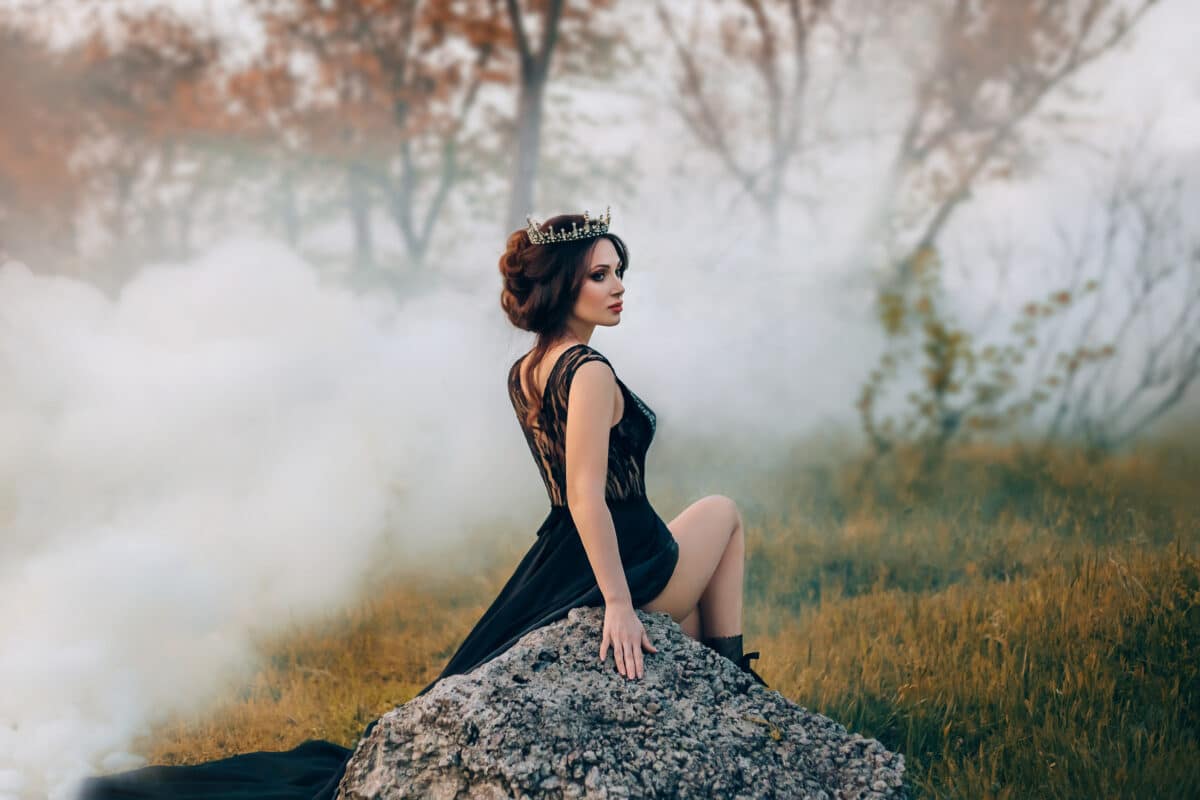
“The Fire” by Lola Ridge
The old men of the world have made a fire
To warm their trembling hands.
They poke the young men in.
The young men burn like withes.
If one run a little way,
The old men are wrath.
They catch him and bind him and throw him again to the flames.
Green withes burn slow…
And the smoke of the young men’s torment
Rises round and sheer as the trunk of a pillared oak,
And the darkness thereof spreads over the sky….
Green withes burn slow…
And the old men of the world sit round the fire
And rub their hands….
But the smoke of the young men’s torment
Ascends up for ever and ever.
“A burnt Ship” by John Donne
Out of a fired ship, which, by no way
But drowning, could be rescued from the flame,
Some men leap’d forth, and ever as they came
Neere the foes ships, did by their shot decay;
So all were lost, which in the ship were found,
They in the sea being burnt,
they in the burnt ship drown’d.
“Fire-Flowers” by Emily Pauline Johnson
And only where the forest fires have sped,
Scorching relentlessly the cool north lands,
A sweet wild flower lifts its purple head,
And, like some gentle spirit sorrow-fed,
It hides the scars with almost human hands.
And only to the heart that knows of grief,
Of desolating fire, of human pain,
There comes some purifying sweet belief,
Some fellow-feeling beautiful, if brief.
And life revives, and blossoms once again.
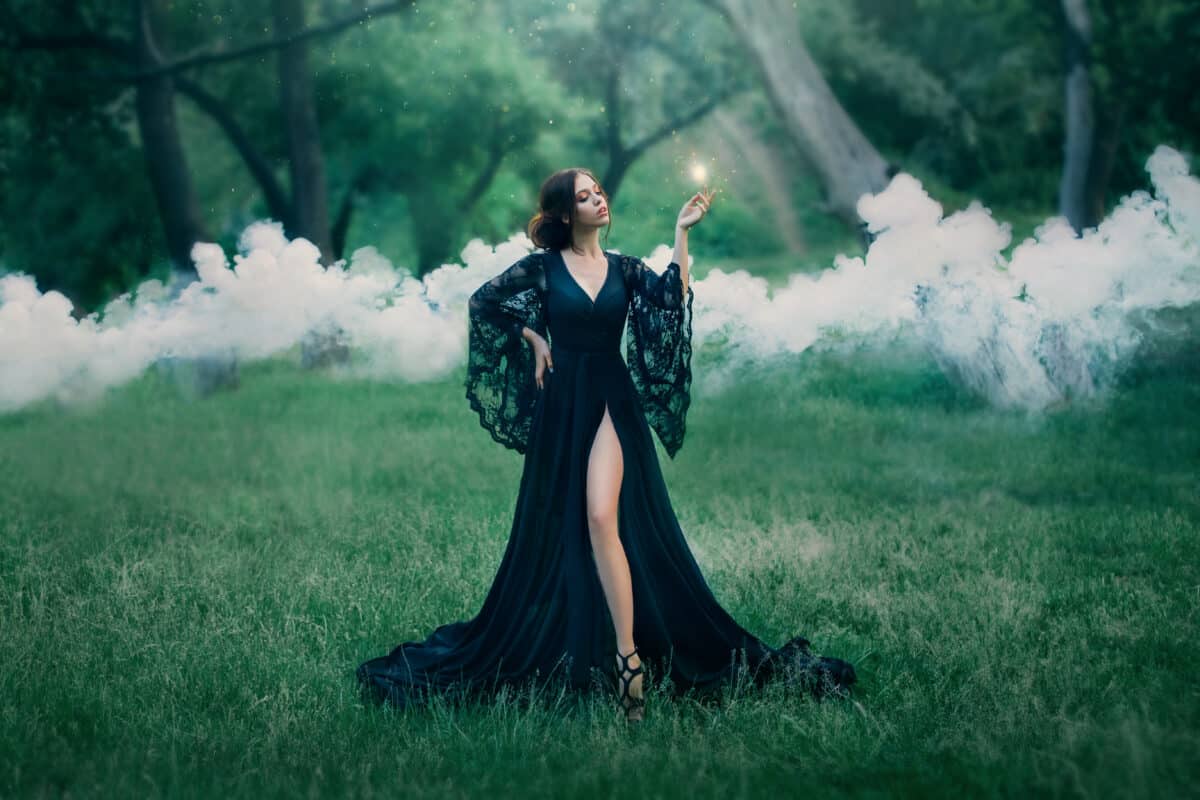
“The Holy Flame ‘Menorah'” by George Jay Holland
Thou sacred flame, so mellow and subdued,
Burning with tremulous, flickering beam
In the holy place, before the all Supreme,
As though the very fire were all imbued
With that almighty prophet’s humble soul,
With Moses’ sense of deep humility,
Whose height of feeling knew no humble goal,
Whose aims bore naught of man’s futility.
Thou, holy fire, whose light shall ever guide
The steps of wandering Israel, to the shrine
Of Him who was, who is, and ne’er will cease to be;
Whose luminous fire gleams down the tide
Of centuries, both of greatness and of woe,
When Israel’s greatness bore a trace divine,
When Israel’s fortune sank, far, far below
Even the lot of those poor Nubian slaves,
Who served our fathers in the promised land;
To thee, oh ancient light! whose very name
Is a memorial of God’s earliest word,
We look to thee, and hail the conquering hand
Of wisdom’s day, o’er spiritual night,
And breathe with God: “Let there be Light.”
“Home Fires” by Carl Sandburg
In a Yiddish eating place on Rivington Street … faces … coffee spots … children kicking at the night stars with bare toes from bare buttocks.
They know it is September on Rivington when the red tomaytoes cram the pushcarts,
Here the children snozzle at milk bottles, children who have never seen a cow.
Here the stranger wonders how so many people remember where they keep home fires.
“Fire” by Henry Wadsworth Longfellow
Not without fire can any workman mould
The iron to his preconceived design,
Nor can the artist without fire refine
And purify from all its dross the gold;
Nor can revive the phœnix, we are told,
Except by fire. Hence, if such death be mine,
I hope to rise again with the divine,
Whom death augments, and time cannot make old.
O sweet, sweet death! O fortunate fire that burns
Within me still to renovate my days,
Though I am almost numbered with the dead!
If by its nature unto heaven returns
This element, me, kindled in its blaze,
Will it bear upward when my life is fled.
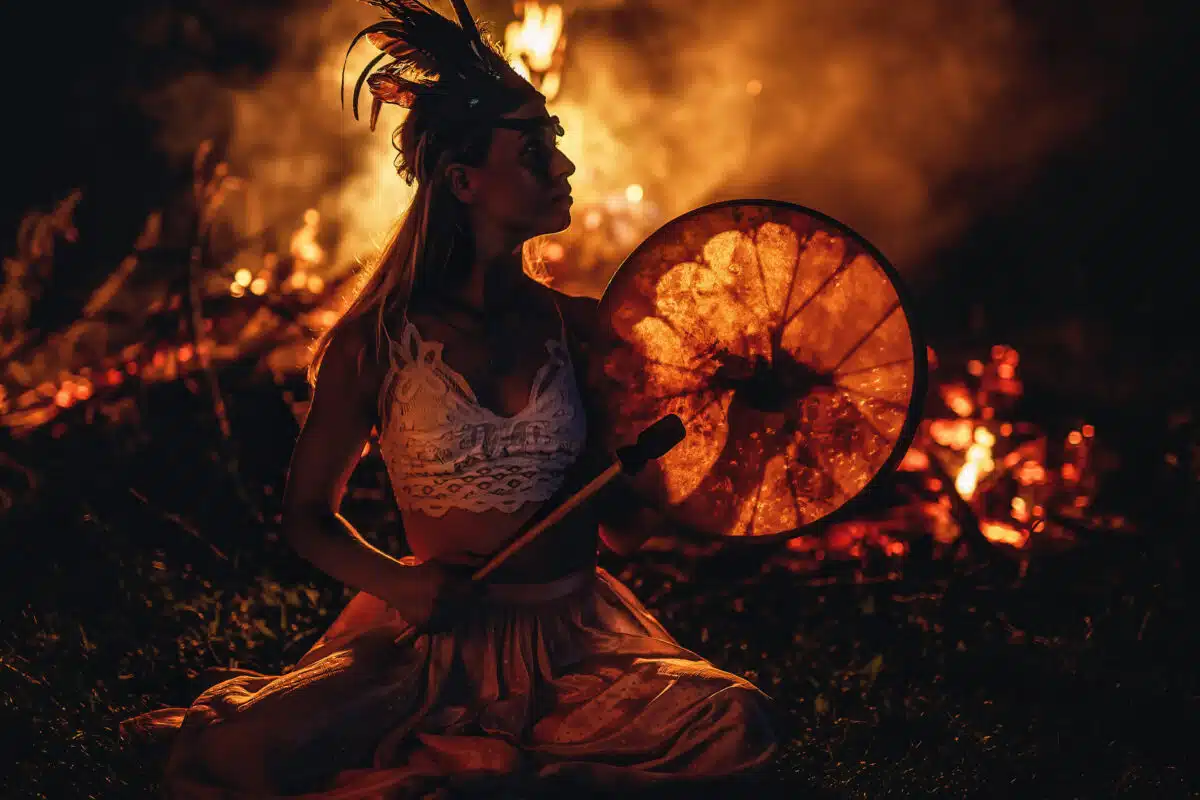
“Fancies in the Firelight” by Thomas Buchanan Read
O, it is a joy to gaze
Where the great logs lie ablaze;
Thus to list the garrulous flame
Muttering like some ancient dame;
And to hear the sap recount
Stories of its native mount,
Telling of the summer weather,
When the trees swayed all together,—
How the little birds would launch
Arrowy songs from branch to branch,
Till the leaves with pleasure glistened,
And each great bough hung and listened
To the song of thrush and linnet,
When securely lodged within it,
With all pleasant sounds that dally
Round the hill and in the valley;
Till each log and branch and splinter
On the ancient hearth of Winter
Can do naught but tell the story
Of its transient summer glory.
O, there ’s tranquil joy in gazing,
Where these great logs lie ablazing,
While the wizard flame is sparkling,
The memorial shadows darkling
Swim the wall in strange mutation,
Till the marvelling contemplation
Feeds its wonder to repletion
With each firelight apparition.
There the ashen Alp appears,
And its glowing head uprears,
Like a warrior grim and bold,
With a helmet on of gold;
And a music goes and comes
Like the sound of distant drums.
O’er a line of serried lances
How the blazing banner dances,
While red pennons rise and fall
Over ancient Hannibal.
Lo, beneath a moon of fire,
Where the meteor sparks stream by her,
There I see the brotherhood
Which on sacred Grütli stood,
Pledging with crossed hands to stand
The defenders of the land.
And in that red ember fell
Gessler, with the dart of Tell!
Still they fall away, and, lo!
Other phantoms come and go,
Other banners wing the air,
And the countless bayonets glare,
While around the steep way stir
Armies of the conqueror;
And the slow mule toiling on
Bears the world’s Napoleon.
Now the transient flame that flashes
’Twixt the great logs and the ashes
Sends a voice out from the middle
That my soul cannot unriddle,—
Till the fire above and under
Gnaws the stoutest wood asunder,
And the brands, in ruin blended,
Smoking, lie uncomprehended,—
While the dying embers blanch,
And the muffled avalanche,
Noiseless as the years descend,
Sweeps them to an ashen end.
Thus at last the great shall be,
And the slave shall lie with them,—
Pié Jesu Domine
Dona eis requiem!
“The Fire Of Drift-Wood” by Henry Wadsworth Longfellow
We sat within the farm-house old,
Whose windows, looking o’er the bay,
Gave to the sea-breeze, damp and cold,
An easy entrance, night and day.
Not far away we saw the port,
The strange, old-fashioned, silent town,
The lighthouse, the dismantled fort,
The wooden houses, quaint and brown.
We sat and talked until the night,
Descending, filled the little room;
Our faces faded from the sight,
Our voices only broke the gloom.
We spake of many a vanished scene,
Of what we once had thought and said,
Of what had been, and might have been,
And who was changed, and who was dead;
And all that fills the hearts of friends,
When first they feel, with secret pain,
Their lives thenceforth have separate ends,
And never can be one again;
The first slight swerving of the heart,
That words are powerless to express,
And leave it still unsaid in part,
Or say it in too great excess.
The very tones in which we spake
Had something strange, I could but mark;
The leaves of memory seemed to make
A mournful rustling in the dark.
Oft died the words upon our lips,
As suddenly, from out the fire
Built of the wreck of stranded ships,
The flames would leap and then expire.
And, as their splendor flashed and failed,
We thought of wrecks upon the main,
Of ships dismasted, that were hailed
And sent no answer back again.
The windows, rattling in their frames,
The ocean, roaring up the beach,
The gusty blast, the bickering flames,
All mingled vaguely in our speech.
Until they made themselves a part
Of fancies floating through the brain,
The long-lost ventures of the heart,
That send no answers back again.
O flames that glowed! O hearts that yearned!
They were indeed too much akin,
The drift-wood fire without that burned,
The thoughts that burned and glowed within.
“Fire” by Eunice Tietjens
Love, let us light
A fire tonight,
A wood fire on the hearth.
With torn and living tongues the flames leap.
Hungrily
They catch and lift, to beat their sudden wings
Toward freedom and the sky.
The hot wood sings
And crackles in a pungent ecstasy
That seems half pain of death, and half a vast
Triumphant exultation of release
That its slow life-time of lethargic peace
Should come to this wild rapture at the last.
We watch it idly, and our casual speech
Drops slowly into silence.
Something stirs and struggles in me,
Something out of reach
Of surface thoughts, a slow and formless thing—
Not I, but a dim memory
Born of the dead behind me. In my blood
The blind race turns, groping and faltering.
Desires
Only half glimpsed, not understood,
Stir me and shake me. Fires
Answer the fire, and vague shapes pass
Like shapes of wind across the grass.
The red flames catch and lift,
Roaring and sucking in a furious blaze;
And a strange, swift
Hunger for violence is in me. My blood pounds
With a dark memory of age-old days,
And mad red nights I never knew,
When the dead in me lived, and horrid sounds
Broke from their furry throats.
In drunken rounds,
Blood-crazed, they danced before the leaping flames,
While something twisted in the fire….
Now as the flames mount higher
Strange pictures pass. I cannot see them quite
And yet I feel them.
I am in a dread
Dark temple, and I beat my head
In maddened rite,
Before the red-hot belly of a go
Who eats his worshippers…
This is a funeral pyre
And one lies dead
Who was my life. The fat smoke curls and eddies,
Beckoning suttee…
But the moment slips
To Bacchanalian revels—quick hot lips
And leaping limbs, lit by the glare
Of human torches….
A sudden spark
Goes crackling upward, followed by a shower;
And I am in the hills, cool hills and dark,
Primeval as the fire. The beacon flare
Leaps in a roaring tower,
Spattering in sparks among the stars
Tales of wild wars.
And on a distant crest
Its mate makes answer….
But the embers gleam
Like molten metal steaming at a forge,
Where with rough jest
Great lusty fellows
Ply the roaring bellows,
And clang the song of labor—and the dream
Man builds in metal….
Now the red flame steadies.
Softly and quietly it burns,
Purring, and its embers wear
A friendly and domestic air.
This is the hearth-fire—home and peace at last.
Comfort and safety are attendant here.
The primal fear
Is shut away, to whistle in the blast
Beyond the doorway where the shadows twine.
The fire is safety, and the fire is home,
Light, warmth and food. Here careless children come
Filling the place with laughter;
And after
Men make good council-talk, and old men spin,
With that great quiet of the wise,
Tales of dead beauty, and of dying eyes.
The fire is drooping now. A log falls in
Softly upon itself, like one grown tired
With ecstasy. The lithe tongues sink
In ash and ember:
And something I remember
From ages gone—and yet I cannot think—
Some secret of the end,
Of earth grown old, and death turned friend,
And man who passes
Like flame, like light, like wind across the grasses.
Ah, what was that? A sudden terror sped
Behind me in the shadows. I am cold;
And I should like your hand to hold
Now that the fire is dead.
Love, light the lamp, and come away to bed.
Fire is a strange thing, burning in your head.
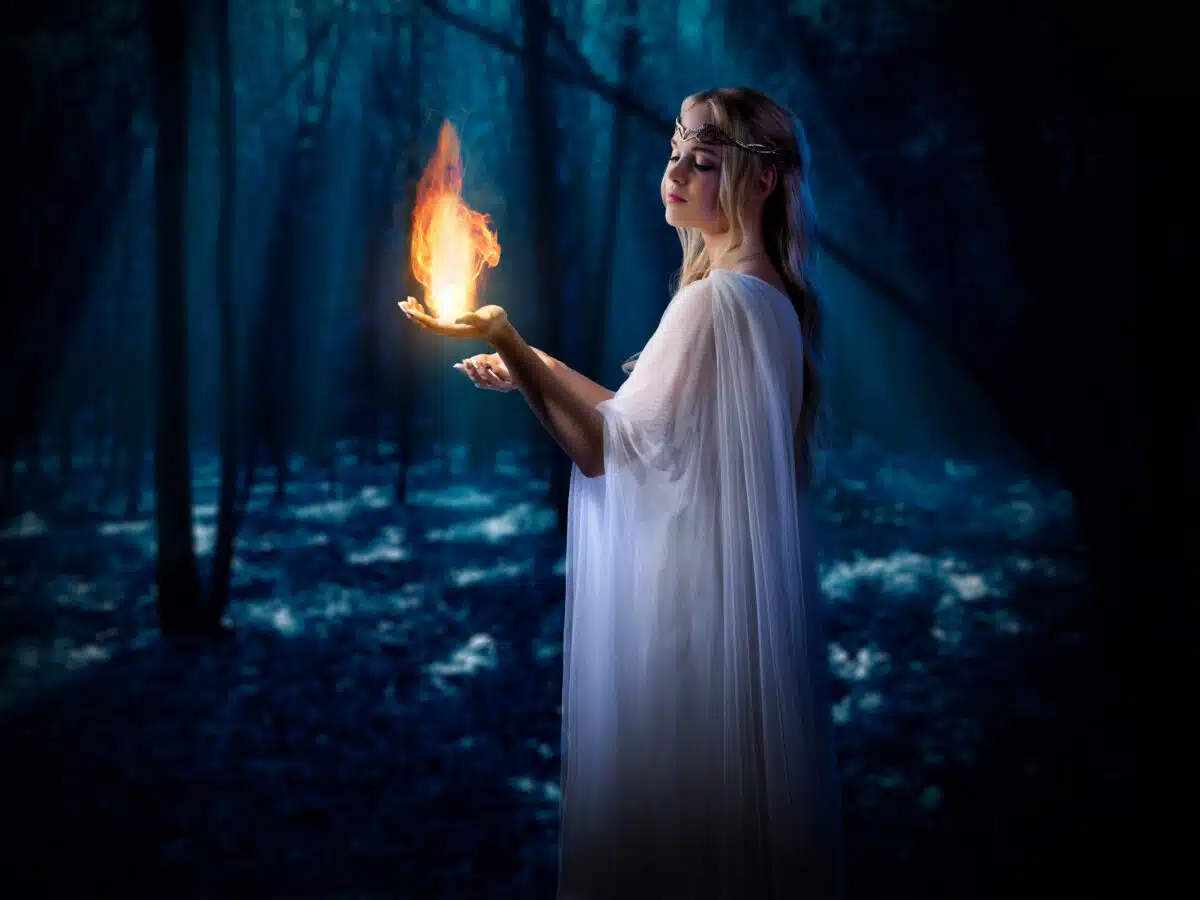
“Hymn to Fire” by Konstantin Balmont
1
Oh, fire who purgeth us
In fate-kindled strife,
Thy beauty ruleth us,
Shining with life!
2
Still and meek in the glow of a taper in church,
But in riot—tumultuous-tongued,
Unmoved by wild prayers, multi-faced,
Shot with color in walls overthrown,
Mad with passion, and nimble and gay,—
So triumphantly beautiful
That my eyes are alight with thy joy
Though thou feed on my own,—
O fair Fire, all my dreams are devoted to thee!
3
Eternally changeful,
Thou art Protean-faced.
Thou art smokily crimson
In the bonfires’ roar.
Thou art as a flower of terror with petals of flame,
A bright mane of radiant hair.
In the tremulous flame of a taper thou burn’st
First in blue, then in shuddering gold.
In the silence of midsummer lightnings thou wak’st,
Burning coldly in storm-burdened clouds,
Eerily livid and dark.
In the thunder that crashes, the chanting of rain,
Thou art writ in the lightning’s brief hieroglyphs,
In a quick broken flash
Or a long mighty shaft,
Now a ball with a nimbus of air all aglow
Where the swift-running gold
Is with scarlet besprent.
Thou art in the crystal of stars, in the comets’ strong urge.
Sun-sent, thou dost enter the chambers of plants
With the gift of a quickening warmth.
Thou workest, thou wakest the secret of sap:
Flaming up in a scarlet carnation,
Pale gold in the whispering corn,
Or carelessly flung in a lithe drunken vine.
Thou art lying in wait:
As a spark in the night
So thou leapest elate.
Thou art still in thy flight.
Soon thy glow shall abate,
But alive thou art great,
Than thy beauty is nothing more strange or more bright.
4
I shall chant thy high praises forever!
O sudden, O subtle, O terrible Fire!
Thy work is the melting of metals;
By thy aid are they fashioned and forged:
The ponderous horse-shoes;
The resounding and bright-bladed scythes:
That mow and that reap,
That mow and that reap;
Many circlets for lily-white fingers,
For ring-bounded lives,
For ring-fettered years,
As with lips growing cold the word ‘love’
We repeat.
Thou createst the tools and machines
That shake mountains and shatter and smite,
The tools that find deep-buried gold, the keenness of weapons that kill.
5
Unto thee, omnipresent and sovereign, my dreaming I vow.
I am even as thou.
Thou dost light, thou dost burn, thou dost strive,
Thou art ’live, thou art ’live!
Of old a winged dragon thou wert, to the altar didst glide
Thence to ravish the bride.
And a fiery guest, a consoler who warmed to the bone
The young wife left alone.
O brilliant, O burning, O biting, O fierce,
In thy flame all the colors arise.
Thou art crimson and yellow, thy gleaming doth pierce
With the glow of chameleon gold and the scarlet that lights autumn skies.
Thou art as a diamond with facets that shine,
As the feline caress of soft eyes that are heady as wine,
As the wave in its ecstasy breaking, an emerald line.
Like the leaf’s iridescence agleam with reiterant Springs
In the dewdrop that trembles and swings.
Like the green dream of fireflies kindled at night,
Like the will-o’-the-wisp in the haze,
Like the dark, scalloped clouds the grave evening has gilded with light,
That have spread forth their mourning upon the dim face of the smoldering days.
6
I remember, O Fire,
How thy flames once enkindled my flesh,
Among writhing witches caught close in thy flame-woven mesh.
How, tortured for having beheld what is secret,
We were flung to the fire for the joy of our sabbath.
But to those who had seen what we saw
Yea, Fire was naught.
Ah, well I remember
The buildings ablaze where we burned
In the fires we lit, and smiled to behold the flames wind
About us, the faithful, among all the faithless and blind.
To the chanting of prayers, the frenzy of flame,
We sang thy hosannahs, oh strength-giving Fire:
I pledged love to thee from the pyre!
7
Oh, Fire, I know
That thy light with an ultimate splendor our being shall drench;
It shall flare up before eyes that Death fain would finally quench.
With swift knowledge it burns, and with joy heaven-high
At the vastness of vistas unfolding afar.
Who has summoned those visions to being? And why?
Who has rayed them in colors befitting a star?
Beyond life is the answer.
Oh thou heavenward heart of the element ever in flight,
On my twilight horizon, let Death, necromancer,
Shed perpetual light!
“The Fire Brigade” by Ella Wheeler Wilcox
Hark! high o’er the rattle and clamour and clatter
Of traffic-filled streets, do you hear that loud noise?
And pushing and rushing to see what’s the matter,
Like herds of wild cattle, go pell-mell the boys.
There’s a fire in the city! the engines are coming!
The bold bells are clanging, “Make way in the street!”
The wheels of the hose-cart are spinning and humming
In time to the music of galloping feet.
Make way there! make way there! the horses are flying,
The sparks from their swift hoofs shoot higher and higher,
The crowds are increasing – the gamins are crying:
“Hooray, boys!” “Hooray, boys!” “Come on to the fire!”
With clanging and banging and clatter and rattle
The long ladders follow the engine and hose.
The men are all ready to dash into battle;
But will they come out again? God only knows.
At windows and doorways crowd questioning faces;
There’s something about it that quickens one’s breath.
How proudly the brave fellows sit in their places –
And speed to the conflict that may be their death!
Still faster and faster and faster and faster
The grand horses thunder and leap on their way
The red foe is yonder, and may prove the master;
Turn out there, bold traffic – turn out there, I say!
For once the loud truckman knows oaths will not matter
And reins in his horses and yields to his fate.
The engines are coming! let pleasure-crowds scatter,
Let street car and truckman and mail waggon wait.
They speed like a comet – they pass in a minute;
The boys follow on like a tail to a kite;
The commonplace street has but traffic now in it –
The great fire engines have swept out of sight.
